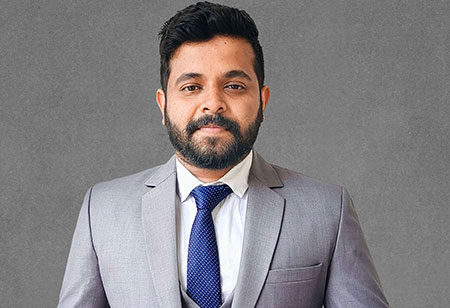
India on the Moon


Sujith Vasudevan, Managing Editor, 0
India’s pride, Chandrayaan-3, is no different. The country recently became the first country to land near the lunar south pole when Chandrayaan-3's Vikram lander carrying
a rover in its belly touched down on the lunar soil after a 20 minute, nail-biting finale watched by millions of people across the world. While the U R Rao Satellite Centre (URSC) serves as the lead center for conceptualizing, designing, developing, testing, realizing, and operationalizing satellites, the spacecraft is the result of a collaborative effort involving a vast array of experts from nearly all ISRO centers and contributions from external partners.
However, while it's well-known that private sector manufacturing giants such as Godrej Aerospace and L&T have contributed to the making of Chandrayaan-3, hardly anyone would know that an engineering college in Tamil Nadu's Salem district devised motors for the Moon mission. Students and researchers of Sona College of Technology developed the simplex permanent magnet stepper motor for the actuator assembly of LVM-3 that controlled the rocket engine’s liquid fuel and oxidizer mixture ratio. While the college designed the motor, it was produced by a private company, Vee Technologies.
As India continues to emerge as an Engineering superpower, it is the right time to bring you our Engineering special issue. Do let us know your thoughts.
However, while it's well-known that private sector manufacturing giants such as Godrej Aerospace and L&T have contributed to the making of Chandrayaan-3, hardly anyone would know that an engineering college in Tamil Nadu's Salem district devised motors for the Moon mission. Students and researchers of Sona College of Technology developed the simplex permanent magnet stepper motor for the actuator assembly of LVM-3 that controlled the rocket engine’s liquid fuel and oxidizer mixture ratio. While the college designed the motor, it was produced by a private company, Vee Technologies.
As India continues to emerge as an Engineering superpower, it is the right time to bring you our Engineering special issue. Do let us know your thoughts.